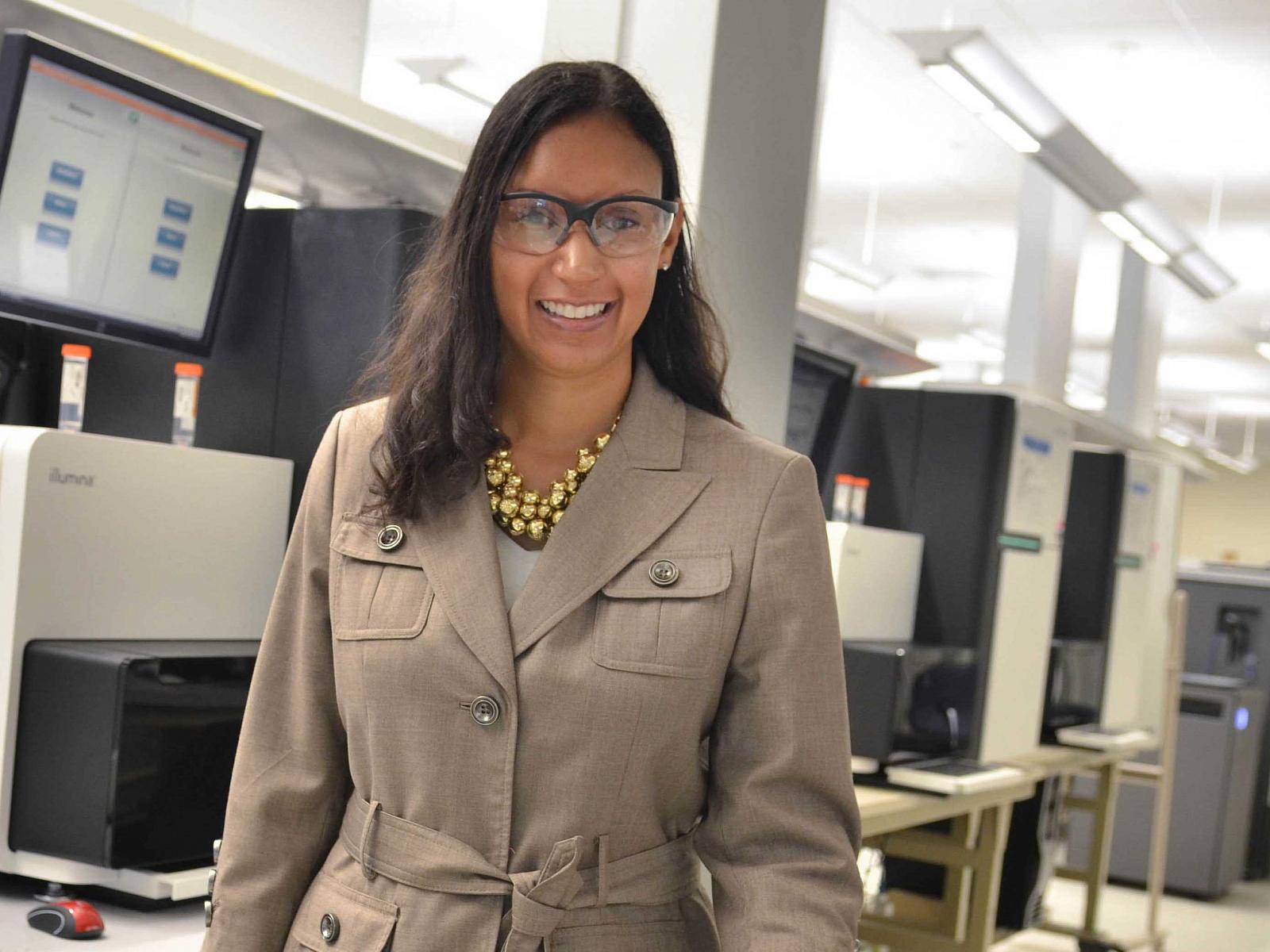 In January, Jacquelyn Taylor, B.S.N. '99, M.S.N. '02, Ph.D. '04, became the third nurse scientist ever to receive the Presidential Early Career Award for Scientists and Engineers (PECASE), putting another exclamation point on the young yet stellar career of the 41-year-old associate professor of nursing and associate dean of diversity and inclusion at Yale University's School of Nursing.
In January, Jacquelyn Taylor, B.S.N. '99, M.S.N. '02, Ph.D. '04, became the third nurse scientist ever to receive the Presidential Early Career Award for Scientists and Engineers (PECASE), putting another exclamation point on the young yet stellar career of the 41-year-old associate professor of nursing and associate dean of diversity and inclusion at Yale University's School of Nursing.
Taylor — whose husband, Andre, received the PECASE in 2010, making them the only married couple to receive the distinction — says she was honored and humbled to be selected by former President Barack Obama as a recipient. The award recognizes Taylor's work as principal investigator on a five-year study funded by the National Institutes of Health’s National Institute of Nursing Research on the impact of genetic and psychological factors on blood pressure, along with her entire body of research and the services she provides to communities.
Taylor's desire to be in the health care field began at age 6, when her life took a sudden, unexpected turn after she went to the doctor for a rash on her chin. Instead of a benign skin condition, Taylor was diagnosed with Wilms' tumor, a rare kidney cancer that primarily affects young children. The next day, Taylor was in surgery having her right kidney removed.
"It was a very serious condition,” she recalls. “At the time, the survival rate was not what it is now.”
While hospitalized at University of Michigan C.S. Mott Children's Hospital, Taylor was inspired by the care she received from the nurses, especially one who also was named Jackie. "It was my first time seeing nurses in action, and it was all the things Jackie did to take care of me and keep me comfortable while making sure I had the best care possible,” says Taylor.
So the seeds were sown for Taylor to become a nurse scientist, a career that would allow her to conduct research on factors that influence health and illness, using that information in clinical practice to improve people's lives. She says being diagnosed with Wilms' tumor and having a family history of high blood pressure — both conditions are more common in African Americans — inspired her to focus her work on genetic, epigenetic, environmental and other factors that influence diseases that disproportionately affect minorities. Taylor credits Wayne State University for giving her the foundation and skills to meet her goals.
"I was encouraged by faculty and advisors to explore questions on why health disparities existed and how we as health providers and scientists may use our knowledge to help reduce and ultimately eliminate such disparities,” she says.
Taylor especially credits the five years she spent as a student lab technician in Wayne State's Minority Biomedical Research Support program — now the Initiative for Maximizing Student Development — with helping her develop the scientific skills she calls on today. "I was also able to witness firsthand how successful research teams were run by [principal investigators] and have been able to model these positive leadership and management techniques in many of my studies,” she adds.
Joseph Dunbar, Ph.D., director of Wayne State's IMSD program, says the program is designed to stimulate students' interest in becoming researchers by having them participate in research early on with scientists and other students.
This story was originally published in the Spring 2017 edition of Wayne State The Magazine.